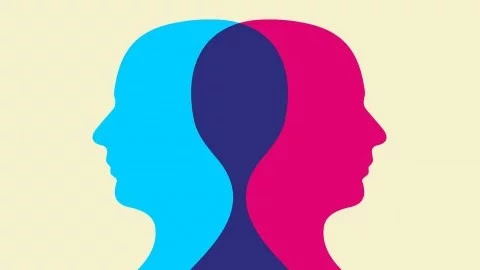You may have a lot of things in common with your friends and brain activity could be one of them.
According to a new study that investigated the neural responses of those in real-world social networks, you are more likely to perceive the world in the same way your friends do and this can be seen in patterns of neural activity.
The investigation by scientists at Dartmouth College, published today in Nature Communications, examined the brains of 42 first-year graduate students, monitoring their responses to a collection of video clips. What they found was that close friends within this group had the most similar neural activity patterns, followed by friends-of-friends, then friends-of-friends-of-friends. The less subjects identified as friends, the more different their neural responses tended to be.
Neural responses to dynamic, naturalistic stimuli, like videos, can give us a window into people's unconstrained, spontaneous thought processes as they unfold,” says lead author Carolyn Parkinson, who at the time of the study was a postdoctoral fellow in psychological and brain sciences at Dartmouth. “Our results suggest that friends process the world around them in exceptionally similar ways."
The 42 students were part of a 279-person cohort that filled out a survey to glean who they considered friends in the year group. The researchers gauged closeness based on mutually expressed friendships, and used this to estimate social distances between individuals. The selection of 42 subjects were each shown a range of videos, covering everything from politics to comedy, to elicit a variety of responses.
(Above: The social network of an entire cohort of first-year graduate students. Orange nodes represent those that took part in the brain scanning portion of the study. Credit: Carolyn Parkinson)
The fact friends tended to neurologically respond similarly suggests these people perceive the world in similar ways. “Whether we naturally gravitate towards people who perceive, think about and respond to things like we do or whether we become more similar over time, through shared experiences, we don't know,” notes Thalia Wheatley, co-author of the study and an associate professor of psychological and brain sciences at Dartmouth.
Wednesday 31 January 2018
Home
/
Science.
/
Your brain can reveal who your true friends are: Study shows how similar neural responses predict friendships
Your brain can reveal who your true friends are: Study shows how similar neural responses predict friendships
Subscribe to:
Post Comments (Atom)
Daily Weapon to Combat Climate Change
The continuous exploration of Mother Earth is drifting the balance and threatening livelihood daily. This isn’t just making it difficult to...












No comments:
Post a Comment